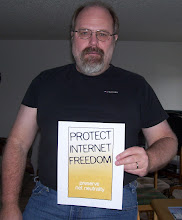
 Rick Steves
Rick StevesMarch 25, 2008
Seattle Post-Intelligencer
RICK STEVES
GUEST COLUMNIST
As a parent helping two children navigate their teen years, and as a travel writer who has seen firsthand how Europe deals with its drug problem, I've thought a lot about U.S. drug policy -- particularly our criminalization of marijuana.
Europe, like the U.S., is dealing with a persistent drug-abuse problem. But unlike us, Europe, which treats drug abuse primarily as a public health issue rather than a criminal issue, measures the success of its drug policy in terms of pragmatic harm reduction.
Europeans seek a cure that isn't more costly than the problem. While the U.S. spends its tax dollars on police, courts and prisons, Europe fights drug abuse by funding doctors, counselors and clinics. European Union policymakers estimate that for each euro invested in drug education and counseling, they save 15 euros in police and health costs. Similar estimates have been made for U.S. health-based approaches by the Rand Corp. and others.
While Europeans are as firmly opposed to hard drugs as we are, the difference in how they approach marijuana is striking. Take the Netherlands, with its famously liberal marijuana laws. On my last trip to Amsterdam, I visited a "coffee shop" -- a cafe that openly and legally sells marijuana to people over 18. I sat and observed the very local, almost quaint scene: Neighbors were chatting. An older couple (who apparently didn't enjoy the trendy ambience) parked their bikes and dropped in for a baggie to go. An underage customer was shooed away. Then a police officer showed up -- but only to post a warning about the latest danger from chemical drugs on the streets.
Some concerned U.S. parents are comforted by the illusion of control created by our complete prohibition of marijuana. But the policy seems to be backfiring: Their kids say it's easier to buy marijuana than tobacco or alcohol. (You don't get carded when you buy something illegally.) Meanwhile, Dutch parents say their approach not only protects their younger children, but also helps insulate teens over 18 from street pushers trying to get them hooked on more addictive (and profitable) hard drugs.
After a decade of regulating marijuana, Dutch anti-drug abuse professionals agree there has been no significant increase in pot smoking among young people, and that overall cannabis use has increased only slightly. European and U.S. government statistics show per-capita consumption of marijuana for most of Europe (including the Netherlands) is about half that of the U.S., despite the criminal consequences facing American pot smokers.
When it comes to marijuana, European leaders understand that a society must choose: Tolerate alternative lifestyles or build more prisons. They've made their choice. We're still building more prisons.
According to Forbes magazine, 25 million Americans currently use marijuana (federal statistics indicate that one in three Americans has used marijuana at some point), which makes it a $113 billion untaxed industry in our country. The FBI reports that about 40 percent of the roughly 1.8 million annual drug arrests in the U.S. are for marijuana -- the majority (89 percent) for simple possession.
Rather than act as a deterrent, criminalization of marijuana drains precious resources, clogs our legal system and distracts law enforcement attention from more pressing safety concerns.
But things are changing. For example, in Seattle, Initiative 75, which makes adult marijuana use the lowest law enforcement priority for local cops, was recently reviewed after four years in action. The results clearly show that during that period, marijuana use didn't measurably increase, and street crime associated with drugs actually went down.
More and more U.S. parents, lawyers, police, judges and even travel writers feel it's time for a change. Obviously, like Europeans, we don't want anyone to harm themselves or others by misusing marijuana. We simply believe that regulating and taxing what many consider a harmless vice is smarter than outlawing it.
Like my European friends, I believe we can adopt a pragmatic policy toward marijuana, with a focus on harm reduction and public health, rather than tough-talking but counterproductive criminalization. The time has come to have an honest discussion about our marijuana laws and their effectiveness. We need to find a policy that is neither "hard on drugs" nor "soft on drugs" -- but smart on drugs.
Rick Steves is a travel writer based in Edmonds.
Original Article






























No comments:
Post a Comment